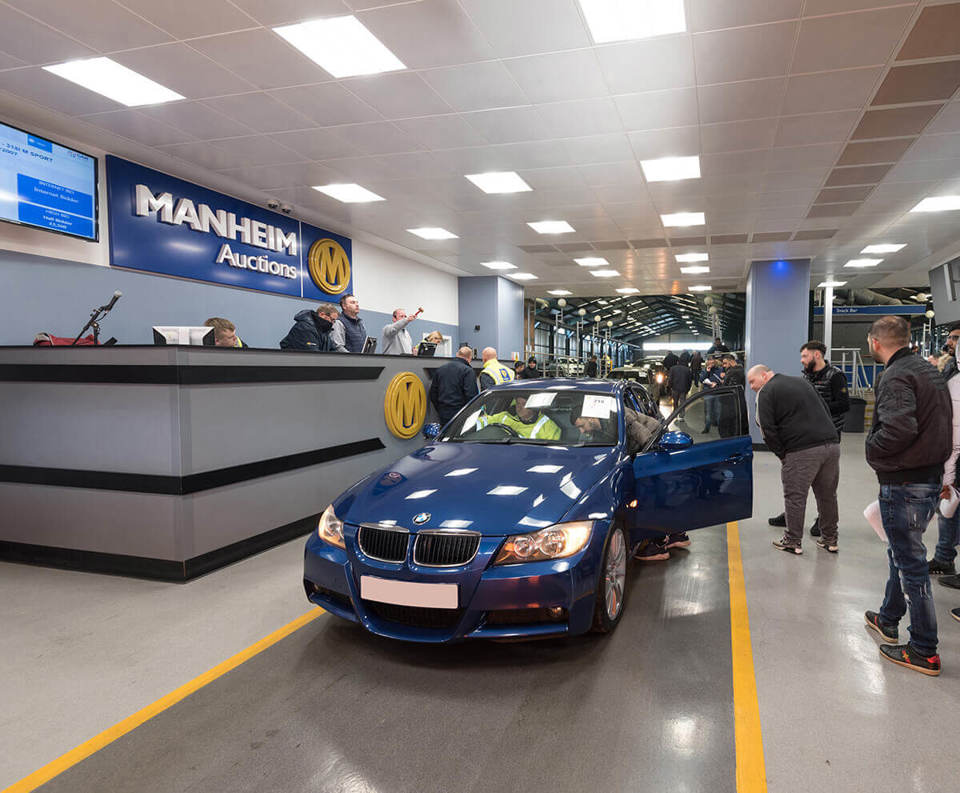With an average of 80 to 90 cars sold every hour during an auction at Manheim Remarketing’s super-centre at Bruntingthorpe, there is little margin for error.
The fast-paced environment sees 1,000 cars a week go through the £2 million centre, all needing to be inspected and valeted before being presented to scores of potential buyers.
Ensuring this operation runs smoothly is the responsibility of auction centre manager Zaiga Jinkinson, who believes a strong team and excellent service are key contributors to growth.
“A manager’s job is to ensure that we have cars for sale and to get the buyers in,” she says.
“We have to make sure people enjoy the experience and come back.”
Jinkinson has been in her current role since the Bruntingthorpe centre opened in February last year.
She began her career at Central Motor Auctions in 1986, before it was later acquired by Manheim.
Bruntingthorpe investment pays off
The Bruntingthorpe site, which has a 56,000sq ft indoor auction centre with undercover storage for 300 vehicles, was formerly a huge Cold War hangar.
The centre is open on weekdays, with auctions held three days a week. It predominantly hosts two types of auctions: the manufacturer closed auction, which is exclusive to dealers, and the fleet and leasing auctions, which are open to anyone.
The investment at the site has seen Jinkinson’s team grow from just three employees 18 months ago to more than 60 today.
By the very nature of an auction, a car could be put through three different sales and sell for different amounts every time, depending on who is in the audience placing bids.
The size of the winning bid depends on the number of potential buyers at the sale and how keen they are to purchase the vehicle.
Therefore, matching the right vehicles to the right buyers in the right location is vital.
Manheim employs a number of tactics to maximise the chance of a first-time sale and to ensure vehicles sell for as much money as possible.
It uses historical data and its own knowledge to move cars around the country, putting them through the centre where they stand best chance of selling.
This is important if a large number of the same models come off fleet at the same time, a particular issue with ex-rental cars.
A commitment to buy
Another challenge Jinkinson faces is if buyers have problems with their car after they have bought it.
“Once the hammer goes down, that car belongs to the buyer,” she says.
“We will try to accommodate buyers because ultimately we want them to come back, but the bottom line is that when they bid, they are committing to buy.”
Some vehicles are Manheim Assured which means that if they do not match the specification of how they were advertised, then the buyer has three days in which it can be returned for a full refund.
Three working days is also the cut-off time Manheim gives before an auction if a car is to be entered into that sale.
This gives the auction centre enough time to get the vehicle valeted and inspected onsite, as well as advertised on both the company website and in the sale catalogue.
If a car fails to sell, then Manheim has back-up options. “We don’t like any cars to go off-site unsold, but if this happens we can sell the cars online through Manheim Direct,” says Jinkinson.
“If vendors wish, we can transport the car to another auction centre to sell there.”
Manheim processes between 350,000 and 400,000 vehicles in the UK each year (Bruntingthorpe is targeted to sell 25,000 this year), with 15-20% of these sold to online buyers.
Manheim’s Simulcast service is a simultaneous internet broadcast of a physical auction, where online buyers compete with bidders physically at an auction centre. It is exclusive to motor trade customers.
This sales channel has seen rapid growth over the past few years, but Jinkinson believes physical car auctions will stay popular for the foreseeable future.
“I still think we will get people at the auction centres,” she said.
“There are people who are still going to want to touch and see the actual cars.”
















Login to comment
Comments
No comments have been made yet.